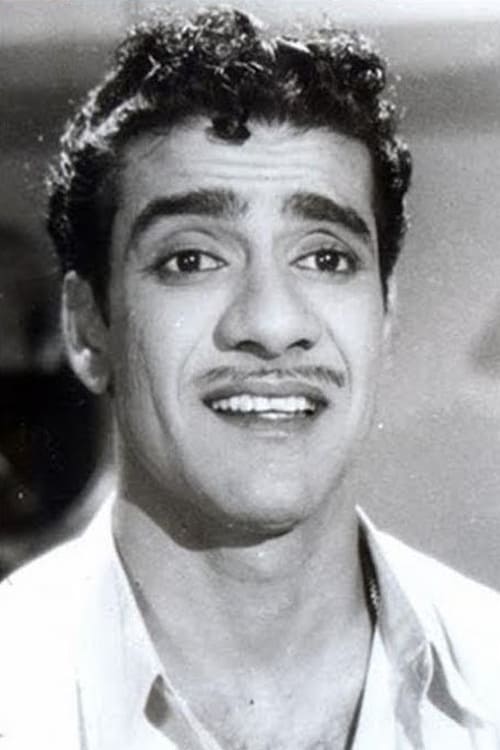J. P. Chandrababu
Рождение : 1927-01-01, Tuticorin, Tamil Nadu, India
Смерть : 1974-01-01
История
J. P. Chandrababu was an Indian film comedian, actor, director, singer and dancer in Tamil language productions, whose Chaplinesque style on-screen movements and singing style made him popular from the late 1940s to the early 1970s.

Doctor
A couple share a house with other three tenants who hail from different parts of the country. However, an unexpected turn of events changes the couple's dynamics with the tenants.

Chandranath, a writer by profession impresses a rich girl, Geetha with his writings. He teams up with Sadanandh, his publisher to get rich using sleazy words.

Conflict arises between two brothers after the death of their father and unknowingly they become rivals.

In an adventurous journey of spreading goodness on earth and by contributing to Tamil literature, Sage Agathiyar faces challenges at various phases of his journey.

Kannaiah
The fate of a small child, Lakshmi, changes when she wins a lottery ticket. All her relatives, who were indifferent to her sufferings, change their attitude and shower her with love.

Story about a spoilt girl and a guy who changes her and saves her from killers.

Chitti Babu
Aandavan Kattalai (English: Deity's order) is a 1964 Tamil film directed by K. Shankar and produced by P. S. Veerappan under PSV Pictures. Music by Viswanathan-Ramamoorthy assets to the movie. The film staaring Sivaji Ganesan and Devika played lead role with J. P. Chandra Babu, K. Balaji, S. A. Ashokan, A. V. M. Rajan and Pushpalatha.

Savithri, who does not have any kids with her husband, decides to adopt her sister's child. Things take a turn when her sister meets her child after many years and yearns for him.

Bandha Pasam is a 1962 Indian Tamil language film directed by A. Bhimsingh and produced by Periyanna. The film stars Sivaji Ganesan, Gemini Ganesan, Savitri and Devika in lead roles. The film had musical score by Viswanathan–Ramamoorthy. This movie was dubbed in Telugu as Aadharsha Saadharalu.

Maari, Flower Seller
An honest police constable has a son (R. Muthuraman) and a daughter (C. R. Vijayakumari). Balaji, son of a rich affluent person is a friend of Muthuraman who often visit his house. Balaji falls in love with Vijaykumari to which she equally reciprocates. She meets Balaji secretly without the knowledge of both her father and brother. One day, Balaji's notorious friends commit a murder and they fled the scene using Balaji's car. At the same point of time, Balaji meets his love in a temple and promises to marry her. Meanwhile, Balaji's father plans to marry his son to one of this relative. Balaji initially discards this proposal but accepts after coming to know that he will be deprived of his father's wealth if he doesn't marry the girl arranged by his father. Vijaykumari is shocked to hear this and finally tells her relationship with Balaji to her parents.

Biscuit
Raja, the son of a rich man who was cheated of his wealth by Jambu, grows up in an orphanage. He becomes a famous poet in the city with the help of Jambu's family, unaware of his past.

Paadha Kaanikkai (English: Offering to the feet) is a 1962 Tamil-language drama film directed by K. Shankar. The film features Gemini Ganesan, Savitri, M. R. Radha and Kamal Haasan in lead roles. The film, produced by G. N. Velumani, had musical score by Viswanathan–Ramamoorthy and was released on 28 September 1962.

Anandakonar, a milkman
Pazhani has two children — Chandiran and Meena. Meena is married. Chandiran loves Pankajam. His father and grandmother want him to marry a relative girl, Thangam, who is very helpful to the family. But Chandiran marries Pankajam defying them. Although brought in for comic relief, the ever-loveable J. P. Chandrababu and his milkman character became the real irresistible pull of this family melodrama. Director A. Bhimsingh—a rare talent to have successes in both South Indian and Hindi cinemas—masterfully blends lightness and pathos.

Gundan
One day, a landlord belonging to a rich family gets murdered and the crime is imposed on Anandar, his innocent brother, and his lovely wife Karpagavalli.

Amidst a troubled kingdom that currently has no ruler, a revolutionary finds himself to be a lookalike of a prince who was to be crowned king. He takes his place but can he outsmart the real culprit?

Impressed by his bravery, a king treats his rival and his daughter as guests after a battle. The king's senior commander gets attracted to her and plans to kidnap her.

Kula Deivam was based on a Bengali film Banga Kora by noted writer Prabhavathi Devi Saraswathi

A king has two wives. He banishes his first wife as an astrologer told him that he would lose his vision because of her son. The mother and son live in the woods and when he meets his father without knowing his identity, the king loses his sight. When the son gets to know about the sad tale from his mother, he sets out to bring a rare flower from Bakavali, which would restore the king's sight. To achieve it, he undergoes many adventures — enters into a debate with a queen and wins the battle of wits, challenges a woman held captive by a crook in a fake dice contest, and rescues a slave dancer of a tribal chief. The hero wins them all and succeeds in getting the flower along with the three women who turn out to be princesses and siblings! Meanwhile, his stepbrothers try to steal the flower, but are exposed.

Mohanasundaram, a philanderer and drunkard, gets married to Chandra after he returns to India. Though he has a wife, he develops a relationship with Kantha, a prostitute.




